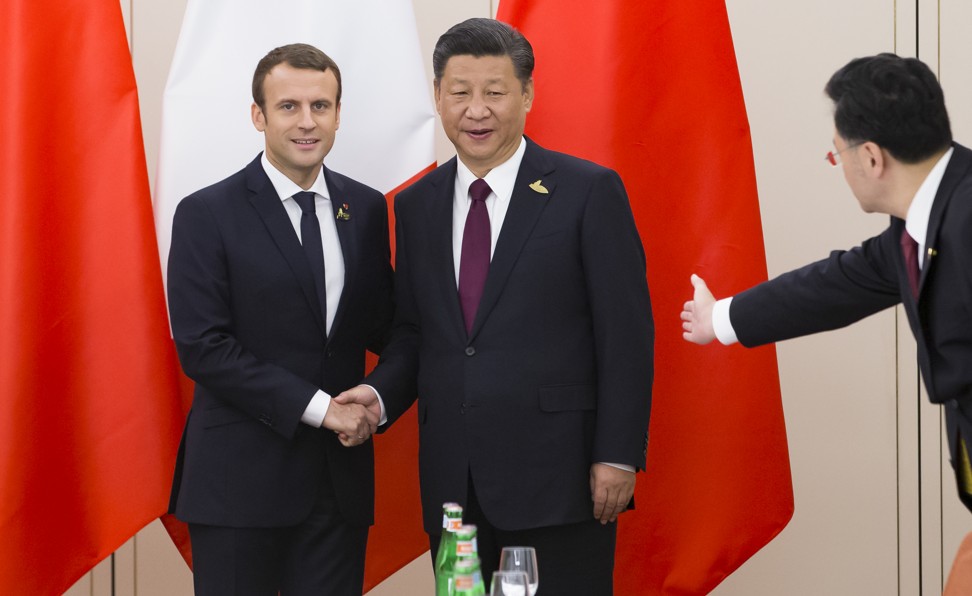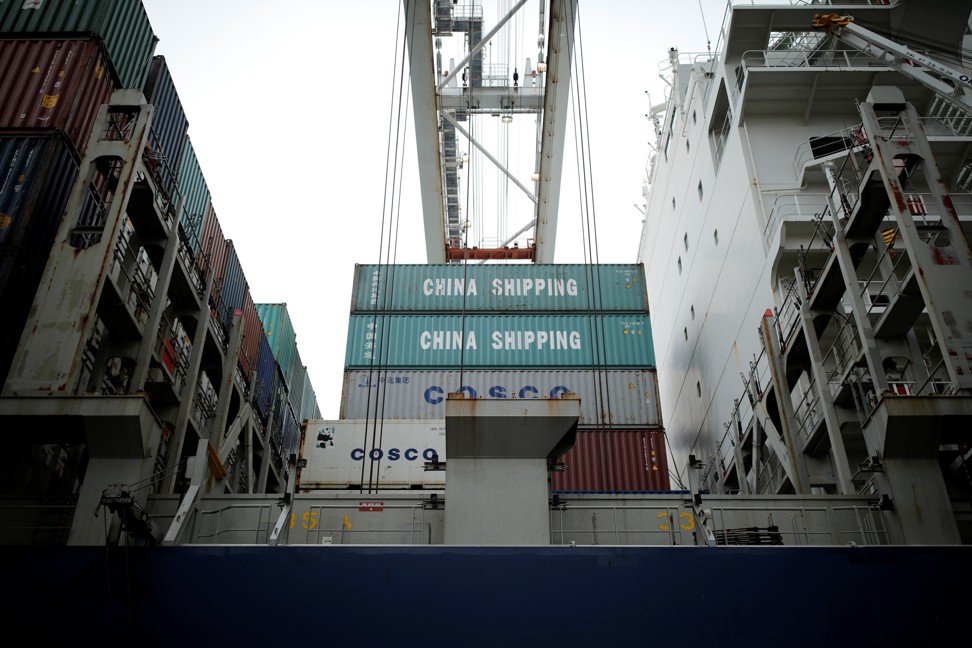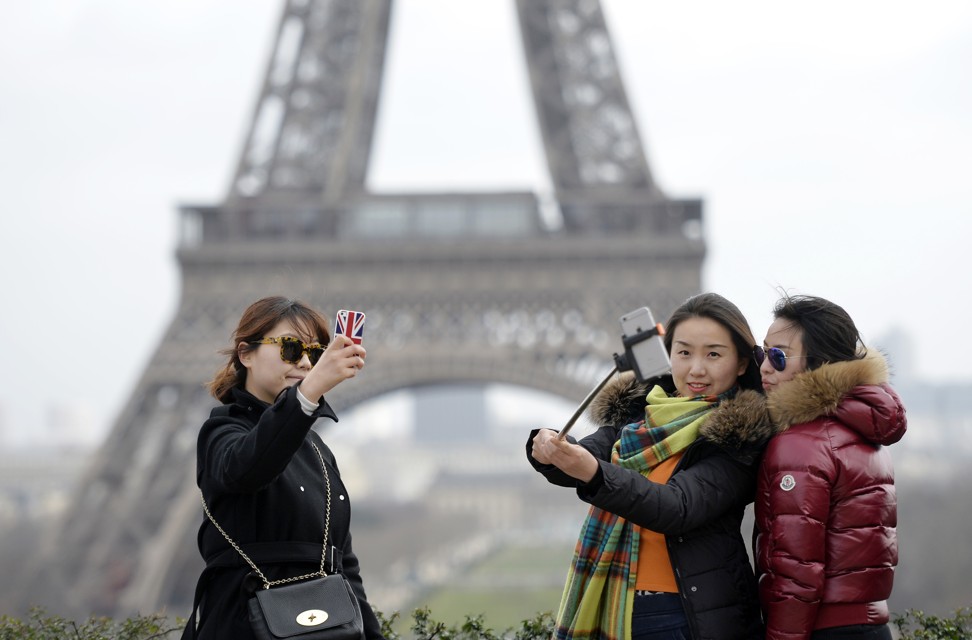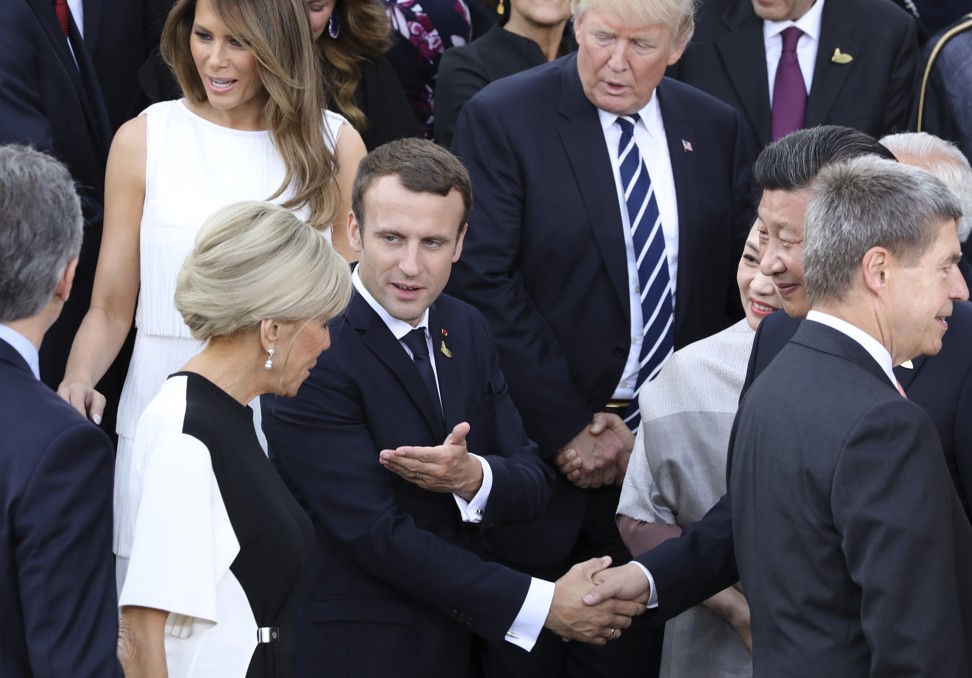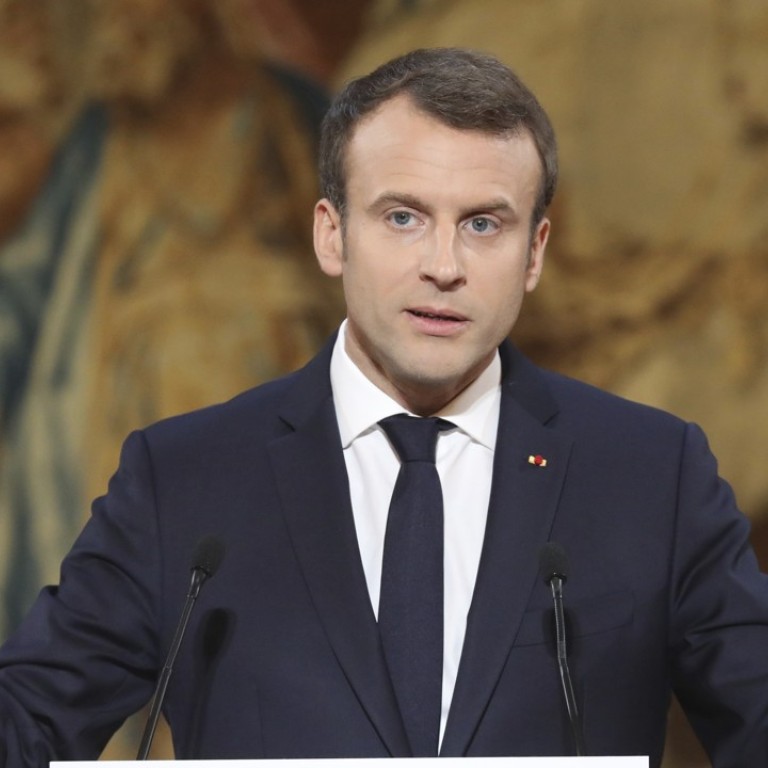
French President Macron’s China visit likely to focus on trade … and boosting global influence
With a shared ambition to play a bigger role on the world stage, the leaders of China and France are likely to have plenty to talk about
Bilateral trade and a mutual desire for greater influence on the global stage are likely to top the agenda when French President Emmanuel Macron visits China next week.
The three-day trip, which starts on Monday, will be Macron’s first to Asia since his presidential election win in May last year, and he has yet to outline a clear policy for the region or China.
For Beijing, the visit will be the first by a major European leader since Chinese President Xi Jinping secured a second term in charge at the national party congress in November.
The two leaders, who met for the first time in July in Hamburg, are likely to discuss a number of tricky trade and investment issues, including France’s trade deficit.
A number of major deals are also expected to be signed during Macron’s stay – he will be accompanied by a large business delegation – including the establishment of a 1 billion euro Franco-Chinese investment fund, France’s presidential office said on Thursday.
“The Macron administration faces the hard task of reviving the French economy, and China is a good partner for it to turn to,” said Ding Chun, the head of European Studies at Fudan University in Shanghai.
China is France’s fifth-biggest trading partner and its largest in Asia, while France is China’s fourth-biggest partner in the European Union. Their bilateral trade in 2016 totalled about US$47 billion.
Although France has a trade deficit with the world’s most populous country, it has invested US$15.7 billion in China, largely in manufacturing firms in the energy, automotive, aviation, telecommunications, water and pharmaceutical sectors, while China’s investment in France totals just US$400 million.
Macron is also likely to voice the concerns of many European countries and businesses that have long accused China of applying unfair trade practices and restricting access to some of its markets.
“China has been advocating for free trade, while the EU has stressed fair trade. There is a gap in understanding and perception,” Ding said.
“Nevertheless, the EU is against protectionism and so is China, so the two sides will be able to communicate and look for consensus.”
Macron is also expected to spend time with some of China’s young entrepreneurs and scientists, and to investigate opportunities for French firms to provide the advanced technologies – especially in sectors such as nuclear and clean energy, aviation and artificial intelligence – that China needs as it continues its programme of economic transformation and industrial upgrading.
Wang Yiwei, a European studies expert at Renmin University in the Chinese capital, said that Xi was also likely to seek Marcon’s backing on issues of importance to Beijing, such as the internationalisation of the yuan.
“China wants to collaborate [with France] on projects in third-party countries, like their joint bid for the Hinckley Point nuclear power plant in Britain,” he said.
Other topics likely to be on the agenda for the two permanent members of the United Nations Security Council are the Treaty on the Non-Proliferation of Nuclear Weapons, the Middle East peace process and counterterrorism.
Also, since the United States’ withdrawal from the Paris agreement, China and France have both been keen to take a leadership role on international efforts to fight climate change.
“One of Macron’s aims will be to present France as a major power and an important player in the international arena,” Ding said. “Such high self-esteem has been a unique factor in the history of the two countries’ relationship.”
Both China and France are interested in multilateralism and the reform of global governance, and that will provide Xi and Macron with a solid base for talks and a mutual understanding, he said.
In their New Year speeches, Macron called on the citizens of Europe to “reinvigorate European ambitions” while Xi asked for “a great rejuvenation of the Chinese nation”.
With Britain’s departure from the EU and Germany’s failure to form a coalition government, France has become a central pillar of the European Union, and Macron has made clear his desire for a more integrated euro zone.
“Macron has brought stability to the EU, which is in China’s interests,” said Shi Zhiqin, an international relations professor at Tsinghua University.
“China wants to see a stable and prosperous EU, especially in the face of the increased protectionism, de-globalisation and geopolitical uncertainty brought about by the [US President] Trump administration,” he said.
“It would take some time, however, for Macron to realise his ambition to make Europe a united military power, and until then China needn’t be too worried about it,” Shi said.
Xi, meanwhile, has been keen to promote his pet “Belt and Road Initiative” – an intercontinental plan to boost Chinese influence through infrastructure and investment projects along the ancient Silk Road and sea routes.
A central element of the plan is China’s expansion of its economic power in Africa, which Wang said could be seen as a challenge to France, which has close ties to many countries on the continent, including more than 20 former colonies.
“There will be competition in Africa,” he said. “Also, there is some feeling in Europe that China is trying to divide the EU through its selective investment in Eastern and central Europe,” he said.
“So China will have to convince France to get on board [with its plans].”
Marcon will start his China visit in Xian, the nation’s former imperial capital and starting point for the Silk Road in northwestern Shaanxi province, according to the Elysee Palace, the French president’s official residence.
He is also expected to visit Beijing’s Forbidden City, which figured so prominently during Trump’s visit in November, and while in the country will see the publication of a Chinese-language version of his memoir Revolution.
Marcon is also likely to try to reassure Xi and the Chinese people that France has reestablished itself as a safe tourism destination.
About 2.2 million Chinese visited France in 2015, but that number plunged in the wake of a slew of deadly terrorist attacks and several incidences of violence against Chinese visitors.


